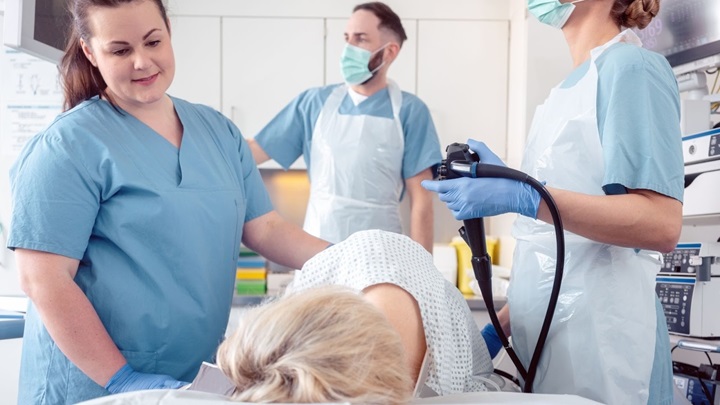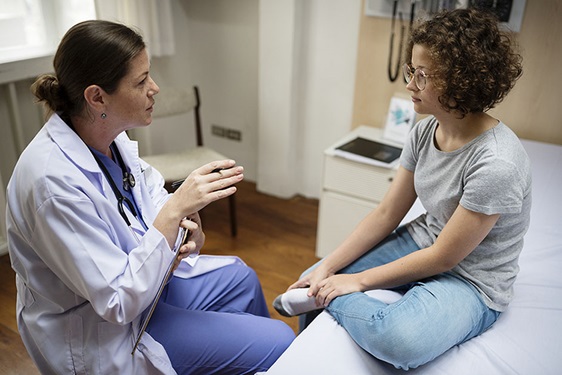Fast Facts:
- Everyone over the age of 45 should be screened for colon cancer.
- More than 1 in 3 US adults is overdue for colorectal screening.
- Almost 75% of people overdue for colorectal screening report not being advised by their doctor.
Colorectal cancer is the second most common cause of cancer deaths in the US. When it’s caught early, colon cancer has a greater than 90% survival rate. Screening tests like colonoscopies help catch colon cancer in its earliest stages. That’s when it’s most curable.

More than 1 in 3 adults are overdue for colon cancer screening in the US
There’s a lot of confusion about colon cancer screening. You might think that if you feel great or don’t have any symptoms, you don’t need to get screened. But when you feel good and don’t have symptoms is exactly the time to get screened. Once you start having symptoms, you move from a screening test to a diagnostic test. And then the chances of having cancer are much greater.
Many people are squeamish about colon cancer screening tests. The prep seems messy. It’s embarrassing to collect my poop in a bowl. It might be painful to have a colonoscopy. I can’t talk to my doctor about my bowel habits!
Excuses like these keep about 30% of adults from getting the recommended screening that could save their lives. A simple discussion with your doctor could put your mind at ease about these myths.
But what if your doctor never talks to you about colon cancer screening?
My doctor didn’t recommend screening at my annual check-up
Say you’re 46 years old and you go in for your annual check-up. Your doctor should do a complete physical exam and ask about any symptoms you have. They’ll also recommend blood tests for things like cholesterol and anemia. They might say you need a mammogram or a test for prostate cancer.
They should definitely talk to you about colon cancer screening.
Unfortunately, a recent study showed that this doesn’t always happen. When researchers asked the people who were overdue for colon cancer screening why they hadn’t gotten it done, almost 75% said their doctor did not tell them they needed it.
The rates of recommendation were lowest for black and asian people, and people who had less than a high school diploma.
Speak up! It could save your life
Even though screening recommendations are in place, healthcare providers might not follow them. Whether it’s due to a busy schedule, not being educated on current recommendations or other reasons, many patients aren’t being told they need screening… even though they took the time to have an annual check up.
It’s important to remember that you are your own best advocate. Make sure to educate yourself about your health. When you go to the doctor, don’t be shy. Speak up and ask about screening tests– not just colon cancer screening. Ask what screening tests you are due for. A good doctor won’t mind you asking questions.
If you wait until you’re having symptoms, you have a higher risk of finding cancer.
The bottom line
Colon cancer screening saves lives. The current recommendation is that everyone over 45 years old get screened. Unfortunately, about 30% of eligible adults are overdue for screening. Of those people, 75% who had a physical exam were not offered a screening test by their doctor. Educate yourself about your health. Speak up and tell your family to speak up. Check it for the people you love. CheckIt4Andretti.

